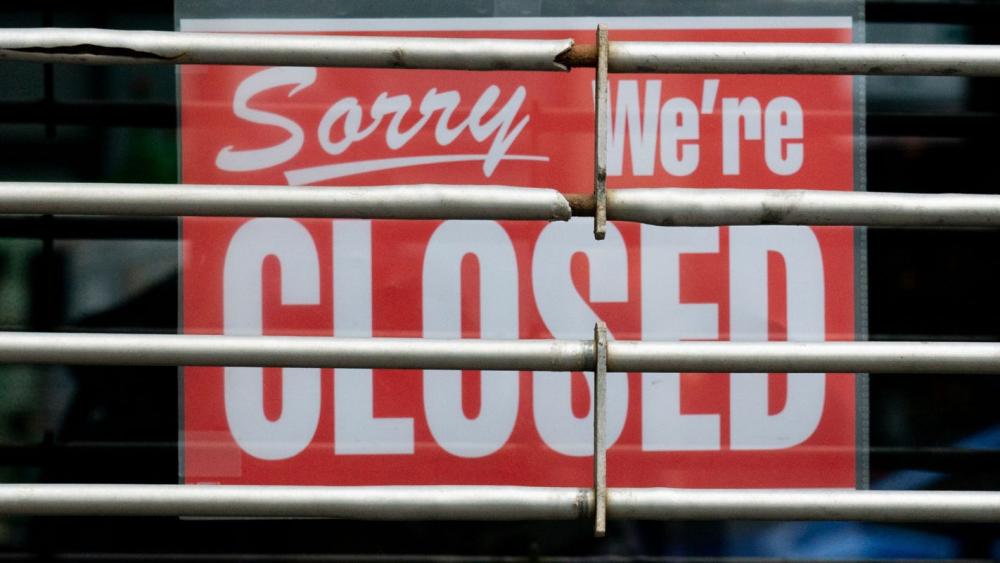COVID-19 is a public health crisis, but as it has unfolded, it has rippled out into an economic crisis, too. The stock market has been volatile, businesses are closing their doors, and millions are staying home to limit the spread of the virus. In our community, The Tea Party Festival and Earth Day celebrations have been canceled. All of this means we in Chestertown and people across America are feeling unprecedented economic pain.
To help, our elected leaders have been planning to give money directly to the American people. Members of the Republican-led Senate, the Democratic-controlled House, and the Trump administration all put forth ideas for direct cash payments, ranging from one-time payments or monthly payments of varying sizes.
“We need cash in the hands of affected families,” said Republican Senator Tom Cotton (R-AR).
“So many people in this country are worried about what happens when their mortgage/rent/car payments/bills are due,” Democratic Congresswoman Maxine Waters (D-CA-43) posted on Twitter.
In the early stages of this discussion, there were no fewer than nine proposals for direct cash payments. We’re encouraged to see the broad agreement that during a crisis, it helps to put cash in people’s pockets and let them spend it how they see fit.
When Congress turns its attention to climate change—another looming crisis—it should not forget this lesson: Direct cash payments are a simple, transparent, and fair way to support Americans when economic winds are shifting.
Climate change demands that we stop emitting greenhouse gases, which are trapping excess heat in our atmosphere and upsetting our planet’s delicate balance. America needs to move from a fossil fuel-based economy to a clean energy economy. That will be a major change, but it should not be an acute crisis like we’re in now. By charging fossil fuel companies a fee at the source of extraction and reimbursing that fee to Americans through cash dividends, we can ensure a healthy economy while making a gentle transition to a clean energy future.
As proposed in HR 763, the Energy Innovation and Carbon Dividend Act, Congress could put a price on carbon pollution, driving our economy away from fossil fuels and toward clean energy sources, and it could rebate that money as an equal cash payment, or “dividend,” to all Americans each month.
Cash payments/dividends give Americans the choice of how to spend it: pay bills, buy groceries, save, invest in a more energy efficient car, spend it at a local business, or anything else.
This is especially important for low- and middle-income Americans, who might otherwise struggle with cost increases as we shift to a clean energy economy. When dividends are given to everyone, low- and middle-income Americans benefit dramatically. For anyone concerned about those who are uniquely vulnerable to both economic shocks and climate change impacts—direct cash payments/dividends are an effective tool to help meet their needs.
Finally, cash payments/dividends are transparent and easy to track, unlike tax offsets. That visibility helps people and our elected officials stay focused on the problem at hand: right now, the pandemic. Soon, climate change.
As of this writing, Representative Andy Harris has sent a letter to constituents outlining
the Coronavirus Aid, Relief, and Economic Security (CARES) Act with direct payments to taxpayers through recent tax filings or their Social Security Benefit Statement. Taxpayers will receive a one-time payment of $1,200 from the Treasury, plus an additional $500 for every child under the age of 17.
It’s clear that money in the hands of Americans helps keep our economy running. That’s why Congress and the President have used this tool in the current crisis. When we’ve dealt with COVID-19, let’s use that same tool to combat climate change.
Mark Reynolds
Hope Clark
Mark Reynolds is the Executive Director of Citizens’ Climate Lobby. Hope Clark is the Group Leader of the Chestertown chapter of Citizens’ Climate Lobby.



Write a Letter to the Editor on this Article
We encourage readers to offer their point of view on this article by submitting the following form. Editing is sometimes necessary and is done at the discretion of the editorial staff.